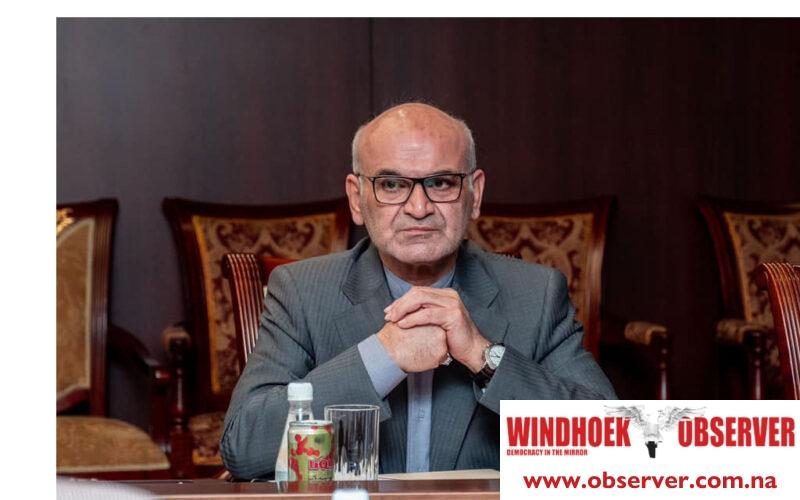Niël Terblanché
Iran has announced new investment plans in Namibia, including the possibility of establishing an oil refinery and oil storage facilities in Walvis Bay.
Iran’s ambassador to Namibia, Seyed Ali Sharifi, made this announcement at a business event for small and medium-sized enterprises (SMEs).
The event, hosted in collaboration with the Namibia Chamber of Commerce and Industry (NCCI), sought to foster business networks and future investment opportunities.
Ambassador Sharifi emphasised Iran’s intention to expand bilateral relations with Namibia across various sectors, particularly focusing on the oil market.
He emphasised Iran’s ability to help Namibia achieve self-sufficiency in fuel production.
The event also served as a platform to introduce Iranian private-sector mines and emerging miners to Namibia’s Emerging Mining Association.
According to Sharifi, the meeting between mining entities underlines Iran’s readiness to partner with Namibia for socio-economic development.
Over the past four decades, Iran has become self-sufficient and ensured food security for its population of 85 million.
“This experience positions Iran as a valuable partner for Namibia,” Sharifi said.
He added that beyond oil and fuel storage, Iran is also in advanced discussions with the Namibian government to construct a factory that will eventually manufacture intravenous medicines and solutions at the coast.
In a bid to strengthen educational ties, Iran has offered 25 scholarships to Namibian students to study various fields at Iranian universities.
“This initiative aligns with Iran’s broader strategy to bolster human resource development in Namibia, contributing to the country’s long-term socio-economic progress,” the Ambassador said.
Iran’s involvement in Namibia extends to the mining sector, too. The Iranian Foreign Investment Company (IFIC) holds a 15% stake in the Rossing Uranium Mine, one of the world’s largest open-pit uranium mines.
The acquisition of this stake in 1975 has garnered international attention, particularly due to the geopolitical implications of uranium resources.
Despite international sanctions targeting Iran’s nuclear programme, the country has retained its shareholding, which emphasises the deep-rooted economic ties between Namibia and Iran.
Sharifi said that the latest investments and initiatives reflect a strengthening of economic and diplomatic relations between Namibia and Iran.
“With Iran’s support in key sectors like energy and education, Namibia will be able to enhance its industrial capabilities and human capital, driving forward its national development agenda,” he added.
The President of the NCCI, Bisey //Uirab welcomed the initiatives proposed by the Iranian Ambassador at the event.
“Obviously Namibia and its business community welcome all investment proposals made by friendly countries. If such nations or governments are serious about doing business with us, we require that such ventures should benefit Namibians as well,” he said.
//Uirab expressed hope that for their part, Namibians will fully participate and take advantage of the opportunities created by such ventures and undertakings.
According to //Uirab, these collaborative efforts hold the potential to yield mutual benefits such as boosting economic growth, developing industries, creating jobs and bringing about stability in the country and the wider region.




